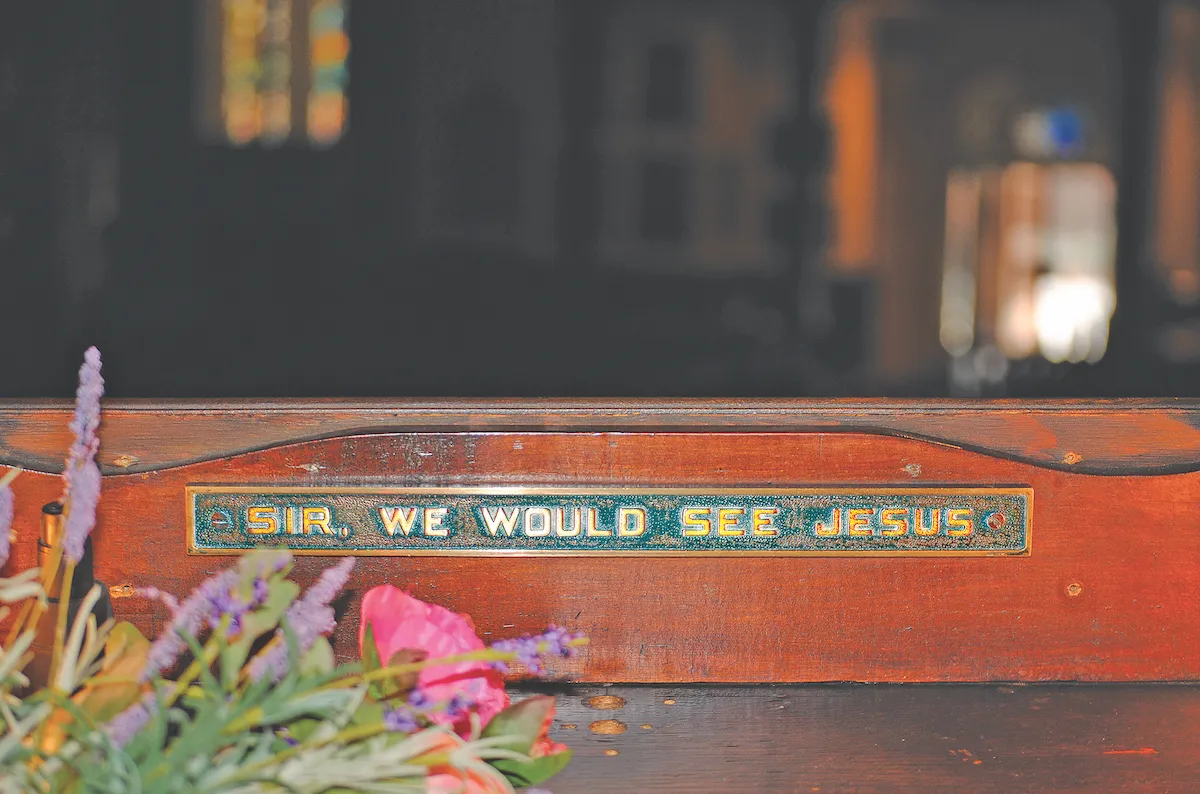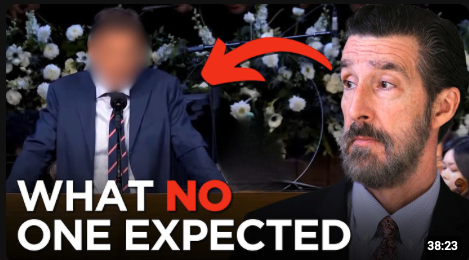Preach Christ. Lament Murder. Resist the War-Drums.

“If your church didn’t address the demonic murder of Charlie Kirk this weekend, the pastor is a coward and needs to repent or resign.”
— Mark Driscoll, on X
“Going to shoot a video today on how to find a new church. If your church is Godly and addressed the events of the week please comment the name and location. My team is building a recommendation list.”
— Mark Driscoll, on X
According to Pastor Mark Driscoll (currently pastor of Trinity Church in Scottsdale, AZ, formerly of Mars Hill fame in Seattle), if your church didn't use Sunday to speak about Charlie Kirk’s assassination, it’s time to find a new church—and he’ll help you make a list.
Here’s why I didn't, and why I think Christians can (and should) respond in a more Jesus-shaped way.
A Brief, Sober Account
On September 10, 2025, conservative activist Charlie Kirk was tragically shot and killed while speaking at Utah Valley University. A 22‑year‑old suspect, Tyler Robinson, has since been arrested and charged with aggravated murder and related offenses. Prosecutors in Utah say they intend to seek the death penalty; investigators cite physical evidence and Robinson’s own messages as part of the case. As I'm writing, the official motive remains under investigation.
We grieve with Erika Kirk and their children, and pray for the comfort of Christ to meet them in this valley. May the Lord be near to the brokenhearted
(Ps. 34:18).
In the hours and days that followed, lines – very hard lines were drawn in the proverbial sand.
There seem to have been only two ways to respond:
"Good riddance", or "This means war."
Sir, we would see Jesus.
Since becoming our church's lead pastor a couple months ago, I've spent a lot of time thinking about questions like, "What is the Church?", "What is the Sunday gathering for?", and "What is the main task of preaching?"
I'm told that on the preacher's side of the pulpits both at All Souls Church in England where John Stott pastored, and at Church of the Open Door in Los Angeles where J. Vernon McGee preached, is a plaque inscribed with the phrase from John 12:21, when the apostle Philip was approached by some gentiles and asked,
"Sir, we would like to see Jesus."
The reminder is as powerful as it is simple. When you step into a pulpit, you have one job. Preach Christ. What the people gathered before you need is to hear of Christ. Your message is the Gospel. That's all you've got.
As one of my former mentors used to say, "You are the butler. Not the chef. Your job is not to invent the meal. Your job is to bring it to the table without dropping it."
These aren't merely the pontifications of modern day pastors and seminary profs.
“I decided to know nothing among you except Jesus Christ and him crucified” (1 Cor. 2:2).
In gathered worship, our first task is not to keep pace with the news cycle, but to fix our eyes on Jesus (Heb. 12:2), devote ourselves to prayer (Acts 6:4), and feed Christ’s sheep with the whole counsel of God (Acts 20:27).
The pulpit belongs to Christ.
Pulpits are not for hot takes and insta-reactions to world news. Of course there’s freedom here; faithful churches will make different prudential calls (Rom. 14:4–5). I'm not here to say that it could not have been done in a Christ-honoring way. But implying that "statements about Charlie Kirk's assassination" are the de facto test of pastoral courage risks replacing Christ’s priorities with cable‑news rhythms.
Our measure is not whether we addressed the latest headline, but whether we lifted up the crucified and risen Lord (John 12:32; 2 Cor. 4:5–6).
“Selective Outrage” and the Impartial God
In the aftermath, some on the left argued that conservatives have “selective outrage” — "Where was your grief when other leaders were killed?"
I’m partly sympathetic to that critique. Christians should indeed be grieved at every image-bearer’s death (Gen. 1:27; Rom. 12:15).
Yes, we ought to be grieved for Charlie Kirk. But also be grieved for Minnesota Rep. Melissa Hortman and her husband, murdered in a targeted attack at their home earlier this summer. Also grieved for Sen. John Hoffman and his wife, both wounded. Also grieved for Rev. Clementa Pinckney, pastor and South Carolina state senator, murdered with eight members of his congregation during a Wednesday Bible study in Charleston. God is not partial; our grief shouldn’t be either.
At the same time... It struck me that the online outrage... about the selective outrage... seems to miss the reality of how public attention really works. It’s just not realistic to expect every tragedy to generate the same coverage or attention. Consider just a few factors:
- Platform — Charlie Kirk’s profile was at a celebrity level, with millions of followers, daily media exposure, and an international reach. By contrast, most state legislators, including Rep. Hortman, were not widely known outside their own districts.
- Visibility — Kirk was murdered in broad daylight, on stage, while cameras were rolling. The footage was viewed millions of times across social media within hours.
- Timing — The event happened during a live tour with national branding, ensuring instant amplification.
- Narrative fit — Kirk was already a polarizing figure at the center of the culture wars, so his death was immediately weaponized in public discourse in a way many other tragedies are not.
It’s simply not realistic to expect anything other than the widespread coverage that has emerged. Given Kirk’s platform, the nature of his murder, and the way it was captured and shared, this tragedy was bound to draw extraordinary attention.
That being said, every life is equally precious.
And that’s why Pastor Mark’s tweets are so disconcerting. To imply that a pastor is a coward for not retrofitting Sunday worship around one particular death is to miss the point entirely. Surely Kirk’s murder was both demonic and grievous — but so was Rev. Clementa Pinckney’s, so was Rep. Melissa Hortman’s, so was every other image-bearer cut down by violence.
The lesson isn’t to tally which loss “deserved” more attention. The lesson is to train our hearts in impartial compassion (Luke 10:25–37; James 2:1). And the pulpit, above all, must remain devoted to Christ — not to whichever outrage trended highest this week.
The Stephen King Problem
In the rush of takes, prolific author Stephen King wrongly, and very loudly, claimed that Charlie Kirk had “advocated stoning gays to death.” He then deleted the post and apologized, acknowledging he had not fact‑checked before posting. I’m genuinely thankful he did; it takes humility to admit error publicly. But you know how the internet works: rumors outrun retractions (Prov. 18:8).
In sad irony, this is exactly the problem that feeds our present cultural crisis in four moves:
- Authority + scale. King’s account reaches a massive audience—roughly seven million followers on X by recent counts. When someone with that reach asserts a claim, people often treat the claim as authoritative. Not because it’s sourced, but because the speaker is prominent. The initial allegation almost certainly traveled farther than the later correction, which is what typically happens online.
- Speed + asymmetry. Large‑scale studies have shown that false claims tend to spread faster, farther, and deeper than true ones, especially in politics. Even when bots are removed from the data, humans preferentially retweet falsehoods. That means a bad first take: especially from a high‑follower account will usually outpace any apology or correction. (See this MIT News article)
- Stickiness. Once a claim is seen and repeated, people are more likely to remember, and even believe it even after encountering a correction. Repetition increases perceived truth; familiarity lingers. That’s why screenshots last longer than apologies. (Check this out for more).
- Crisis‑event amplification. Breaking tragedies are fertile ground for viral error. In the days after Kirk’s assassination, misinformation and conspiracy content surged across platforms, further muddying what people thought they “knew.” In that environment, one celebrity misstatement multiplies downstream harm.
So yes, King apologized and deleted. And I’m glad he did. But how many never saw (or never cared to see) the correction? Given his reach and what we know about the virality of false news, it’s reasonable to assume that millions saw the allegation and far fewer registered the retraction. This is how reputations are damaged and neighbors are dehumanized at scale. (Prov. 22:1; Eccl. 7:1)
And this is not just for Stephen King. If we're not careful friends, we become participants in the very cycle we decry: Outrage first, facts later, and then a human being pays the price.
Resist the War-Drums
While those on the left scoff, “Good riddance,” and those on the right cry, “This means war,” too many Americans, too many Christians, are being pulled in, conscripted into a war we have no business waging.
Scripture is clear: we do have a battle. But “we do not wrestle against flesh and blood, but against the rulers, against the authorities, against the cosmic powers over this present darkness, against the spiritual forces of evil in the heavenly places” (Eph. 6:12).
Our struggle is real, but it is not against fellow image-bearers. The assassination of Charlie Kirk was evil. Perhaps even instigated by the evil one. But that does not authorize the Church to take up the rhetoric of a holy war against “them.” Our weapons are not the weapons of the world (2 Cor. 10:4).
The way of the Kingdom of God is not anger. It is not making enemies. It is not the way of the sword.
Jesus said:
- Anger that dehumanizes is murderous at heart (Matt. 5:21–22).
- Enemies are for loving and praying for (Matt. 5:43–48).
- Put your sword back in its place; those who take up the sword perish by it (Matt. 26:52).
- Blessed are the peacemakers, for they will be called sons of God (Matt. 5:9).
- My kingdom is not of this world (John 18:36).
In other words, the church does not belong to anyone’s holy war. When one camp sanctifies politicians from the pulpit and the other demonizes them with lies online, both betray the King who refused Satan’s offer of political glory (Matt. 4:8–10).
Our allegiance is to the crucified and risen Lord (Phil. 3:20), whose cross shames the world’s power plays (1 Cor. 1:18–25).
Bill I Can't Believe You Think We Should Ignore This.
That's not what I'm saying. (And I hope it's obvious as we near the close of this article, that's not what I'm practicing either.)
What I am saying is that the Church has a purpose. That Preaching has a role. And that Worship has an object (Col. 3:16; Rev. 5:11-14). Christ. Christ. Christ.
Does that mean Christians, that Pastors should just stay away from discussions like this?
No.
That’s one reason I started this blog in the first place. I've had a growing concern for years that while there are certainly examples of Pastors who go too far into politics, there's an equal or greater problem of pastors refusing to speak at all, abdicating their role in applying the Gospel to the issues of the day, and leaving our people to be discipled by cable news talking heads.
Hear me clearly - Pastors need to give their voice to the events of politics and world news. But the pulpit is not the place for those discussions. Not every thought or reflection belongs in a sermon (which again, is why I started this blog in the first place).
Blogs. Podcasts. YouTube. All of these and more can be leveraged to think and speak Christianly about world issues, without displacing Christ from the center of our corporate worship gatherings.
Conclusion
Christians must resist selective outrage, resist rumor, and resist the war drums of extremism. We grieve every death. We tell the truth, even when it’s slower and less flashy than lies. We proclaim Christ, not the culture war.
Mark Driscoll (and an army of others) think pastors should have spent last Sunday talking about Charlie Kirk.
I wonder what Charlie, should he somehow get a message down to us from heaven would say. Am I really to believe that he's up in heaven wringing his hands, wishing more pastors would talk about him, or the culture war he left behind?
Is it more likely he'd want us using the pulpit to talk about him? Or about his savior? If Charlie Kirk could speak to us from eternity, I don’t think he'd ask for more headlines or more outrage. I think he (along with every single soul who ever entered the presence of their savior) would plead with us: “Preach Christ. You have 30–45 minutes and a captive audience. Preach Christ.”
PS.
I never really do this, but if this article resonated with you, can I ask you to consider sharing it? Not to amplify me and my voice. But because there really needs to be an alternative out there between "Good Riddance" and
"This means War".
Appendix I: What Can I Do This Week?
So what can you do this week, instead of being swept into outrage or despair? Here are a few practices:
- Pray the Psalms of Lament (like Psalm 10 or 13), asking God to see, to judge, and to act with justice and mercy.
- Intercede for Erika Kirk and their children by name, and for those at Utah Valley University who carry trauma from that day.
- Guard Your Tongue — and the send button. Before posting or forwarding, ask: Will this edify? (Eph. 4:29; James 3:2-10). If not, hold it back.
- Speak Truth Slowly. Don’t rush to share every headline or hot take. Fact-check, weigh, and remember you represent Christ.
- Practice Impartial Lament. Train your heart to practice lament for every life lost — even for image-bearers you might not have agreed with. Let compassion, not partisanship, shape your grief.
Appendix II: Scriptures for Further Meditation
- On anger and the heart: Matt. 5:21–26; Eph. 4:26–32
- On enemies and peacemaking: Matt. 5:9, 43–48; Rom. 12:14–21
- On truth and speech: Ex. 20:16; Prov. 10:19; 18:17; Eph. 4:25, 29; James 1:19–20; 3:1–12
- On partiality and neighbor‑love: Luke 10:25–37; James 2:1–9; Lev. 19:18
- On the church’s proclamation: 1 Cor. 2:1–5; 2 Tim. 4:1–5; Acts 2:42; 20:27; Heb. 12:1–2
- On the kingdom: John 18:36; Phil. 3:20; Matt. 4:8–10; 26:52



